Join 600+ companies that use our Solar and
Wind Data and APIs
TRUSTED DATA FROM FEASIBILITY TO FORECASTING
Data built for renewable energy industry
We’re your trusted source of data across the renewables industry. From resource assessment to operational forecasting to grid management - Solcast has bankable, accurate data available via API, direct transfer and web platform.
Bankable resource assessment
Model asset performance using bankable global data sets and DNV best practice to understand and optimise renewable asset development
Real cloud tracking
Use live, high-resolution weather data to model, monitor and track energy for solar, wind and hybrid assets
Forecast asset generation
Forecast asset performance at scale to optimise dispatch, operations and portfolio management
Data and models built on DNV best practice
Irradiance, wind and weather data
The Solcast API delivers high-quality, high-resolution global data, bankable actuals and accurate forecasts
Power forecasting
Operational power forecasting models, for solar and wind assets, portfolios, markets and grids, based on industry best practice and decades of DNV expertise.
DNV models and tools
Bankable analytics tools and power models built by DNV for site-feasibility, resource assessment, yield assessment and transactions.
Discover the best practices and insights for the renewable energy industry
.png)
TGYs or TDYs? TMY uncertainty and how time series can be simpler
TMY variants - there's no universal right choice. This guide explains what they are, why selection introduces uncertainty, and how non-specialists can transition to time series data for more reliable yield estimates.
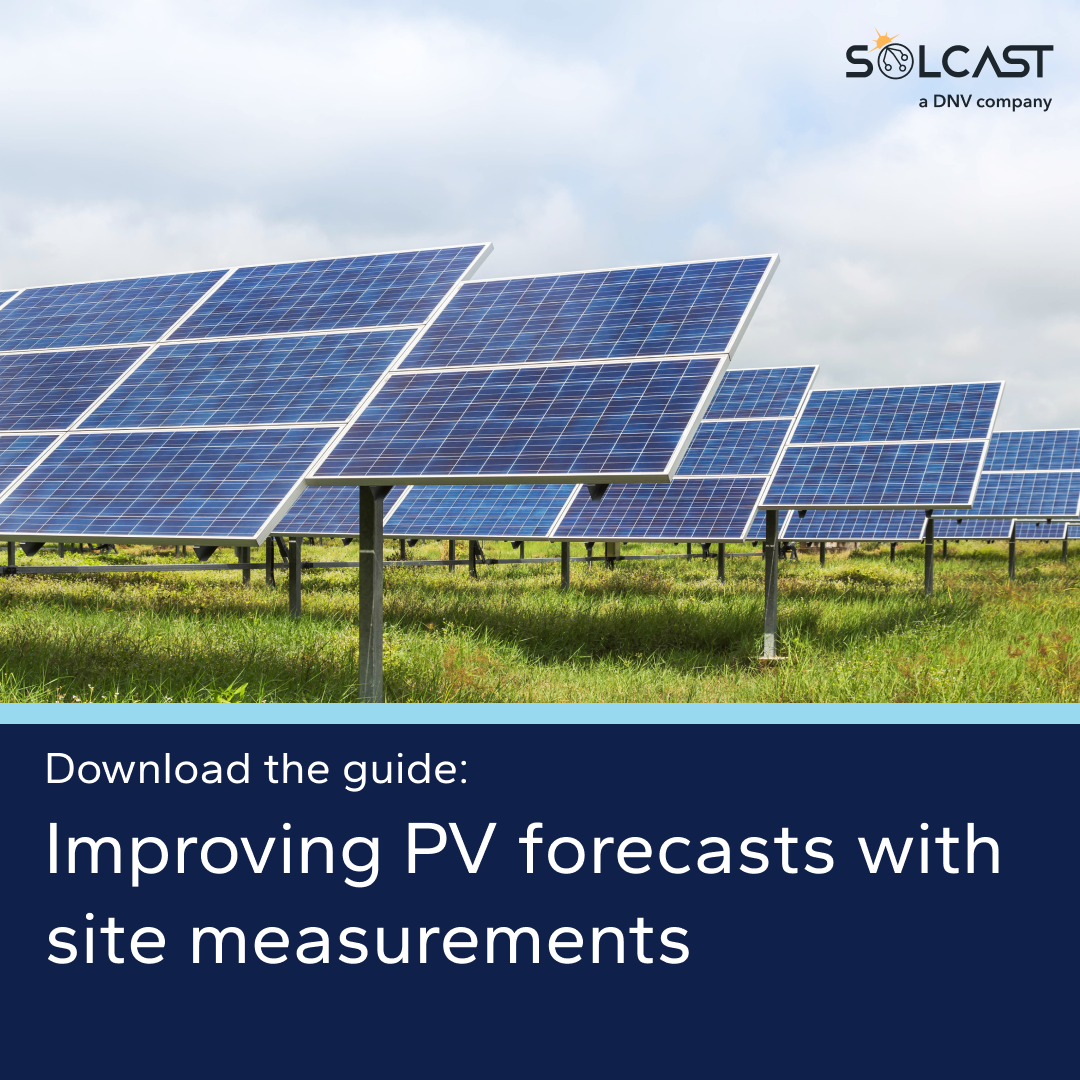
A practical guide to improving utility-scale & rooftop forecasts with site measurements
Discover key insights from Solcast on how site measurements and fine-tuned models can make your PV forecasts more accurate and reliable.
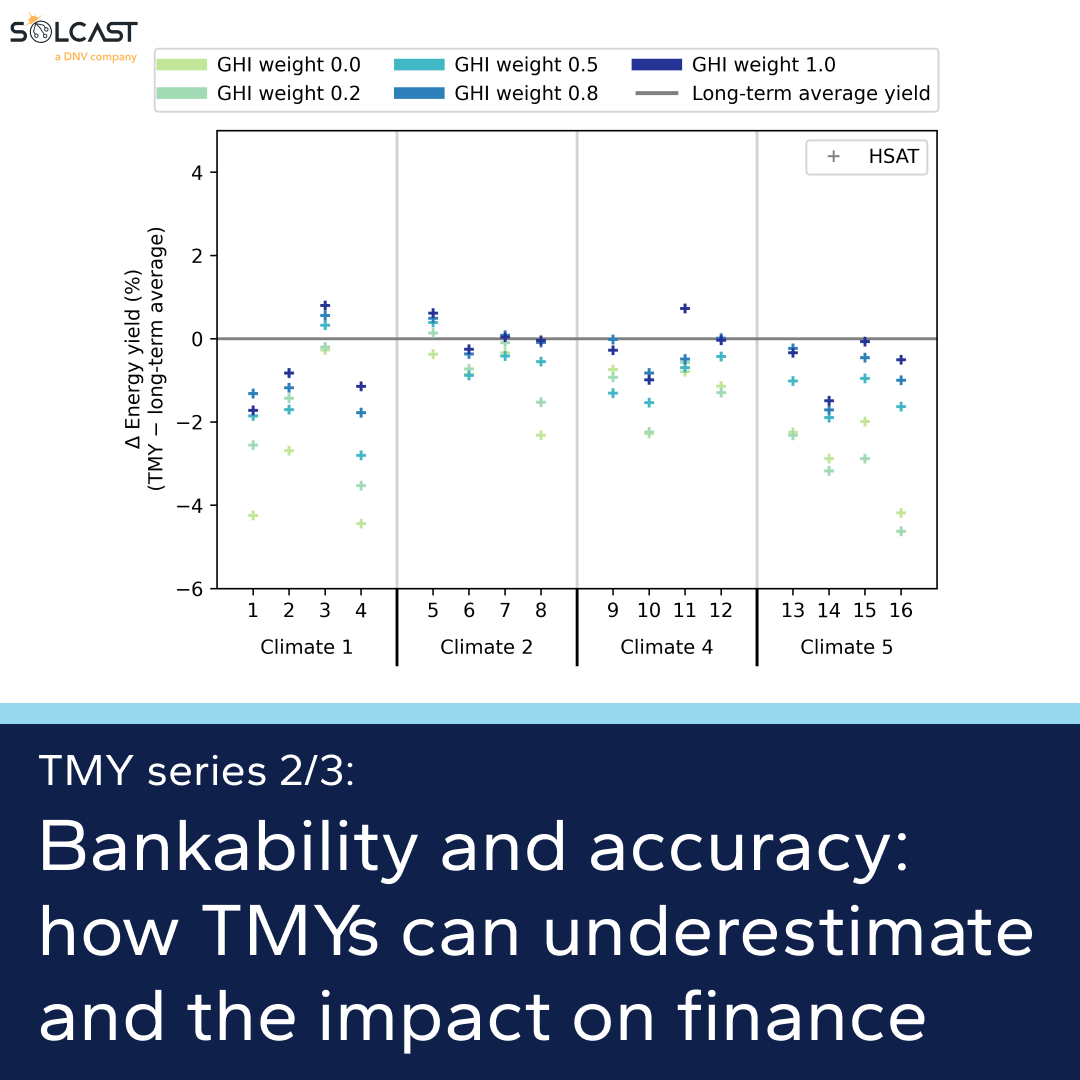
Bankability and accuracy: How TMYs can underestimate production, and the impacts on solar project economics
Discover why moving beyond hourly Typical Meteorological Year (TMY) datasets to sub-hourly, multi-year Time series data is essential for accurate, risk adjusted financial modeling – and how this improves solar project returns.
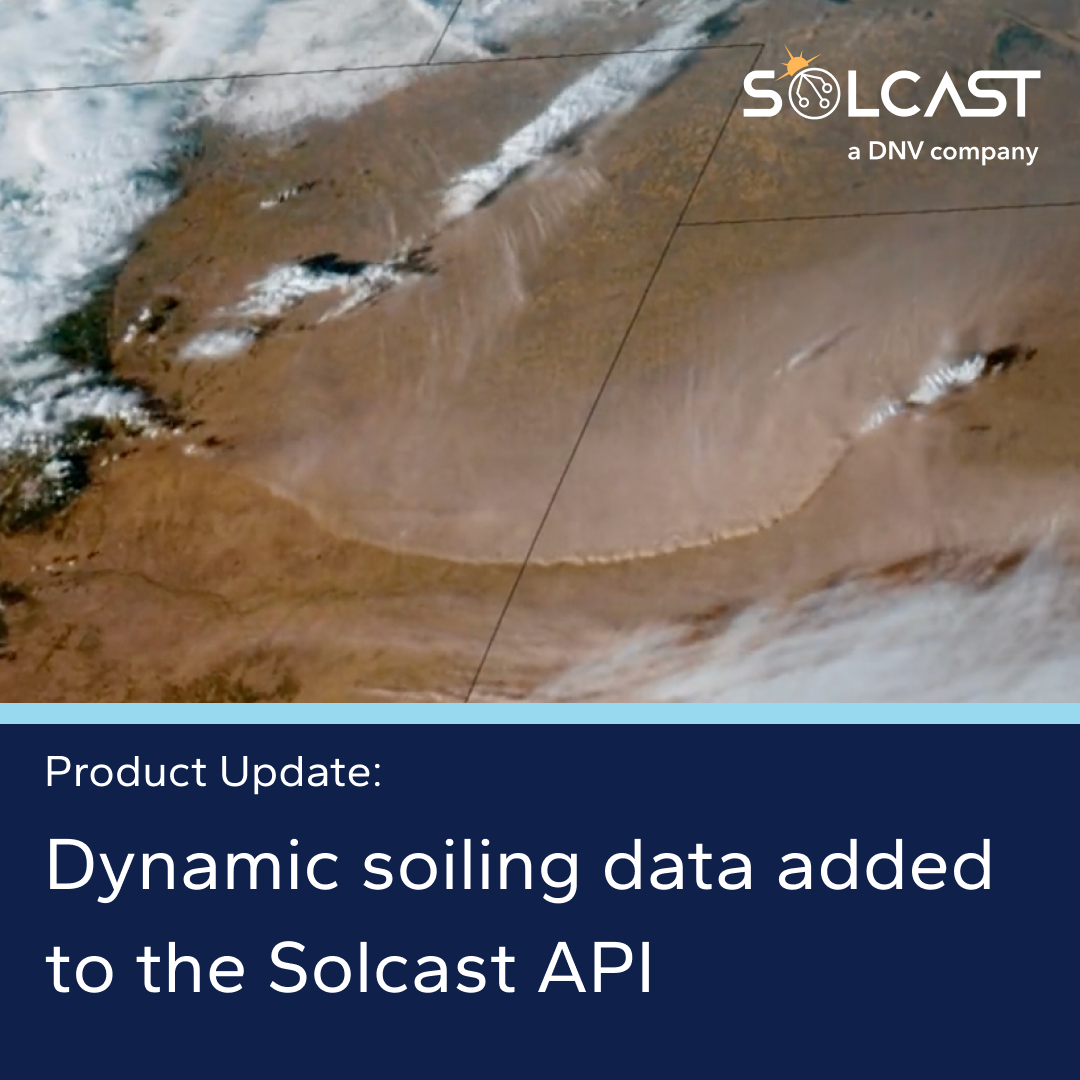
Modelling PV soiling with PM2.5 and PM10: New parameters in the Solcast API
Solcast has introduced new parameters for PM2.5 and PM10 particulate matter concentrations in its API to improve the accuracy of photovoltaic (PV) soiling loss modelling globally. This integration supports data-driven soiling analysis by combining particulate data with irradiance and weather information for better energy yield predictions.
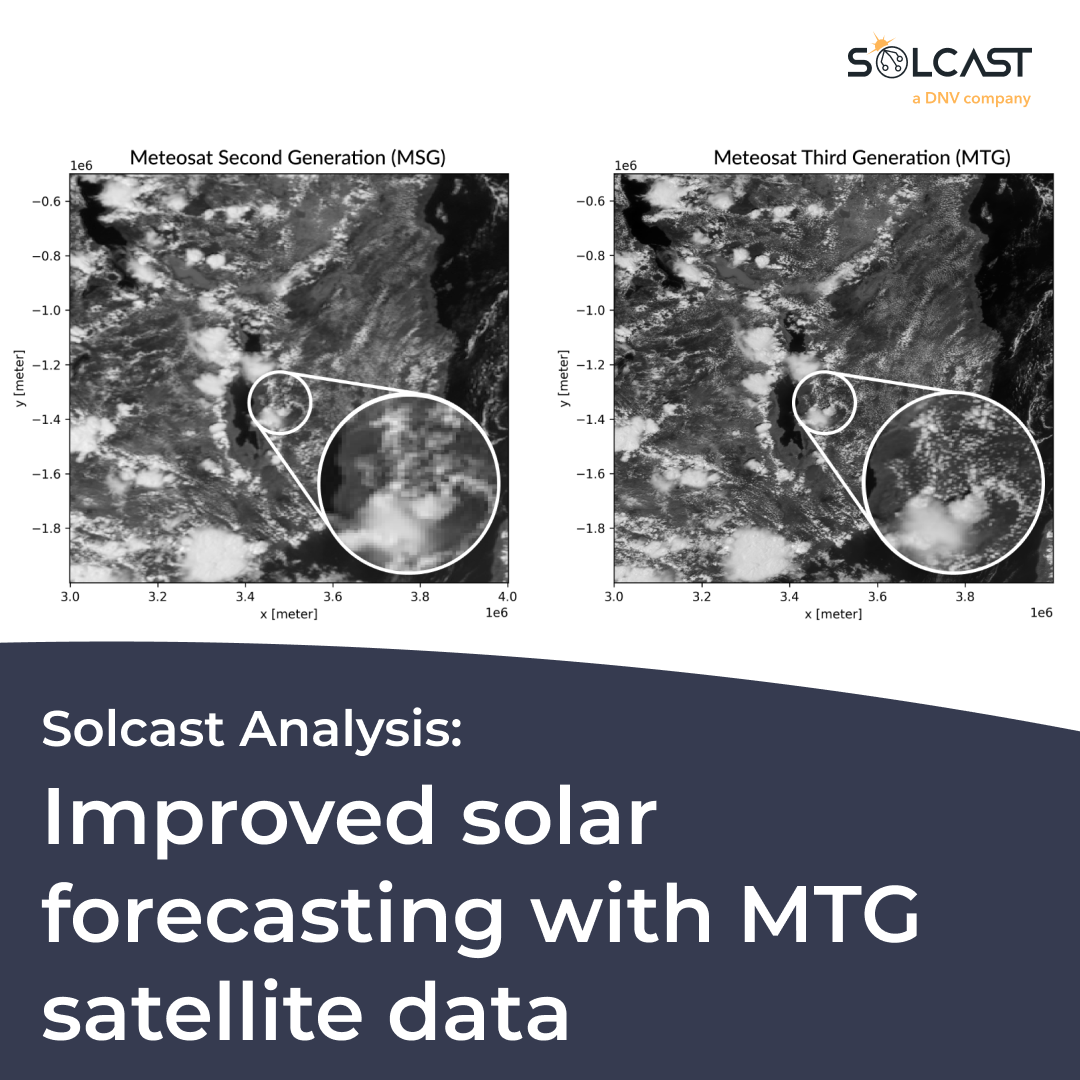
Eyes in the Sky: Meteosat Third Generation is Now Live, Improving Solar Forecasting
Satellite imagery over Europe and Africa is getting an upgrade. Discover how Solcast is using data from the new MTG satellite to enhance real-time and forecast solar irradiance accuracy.
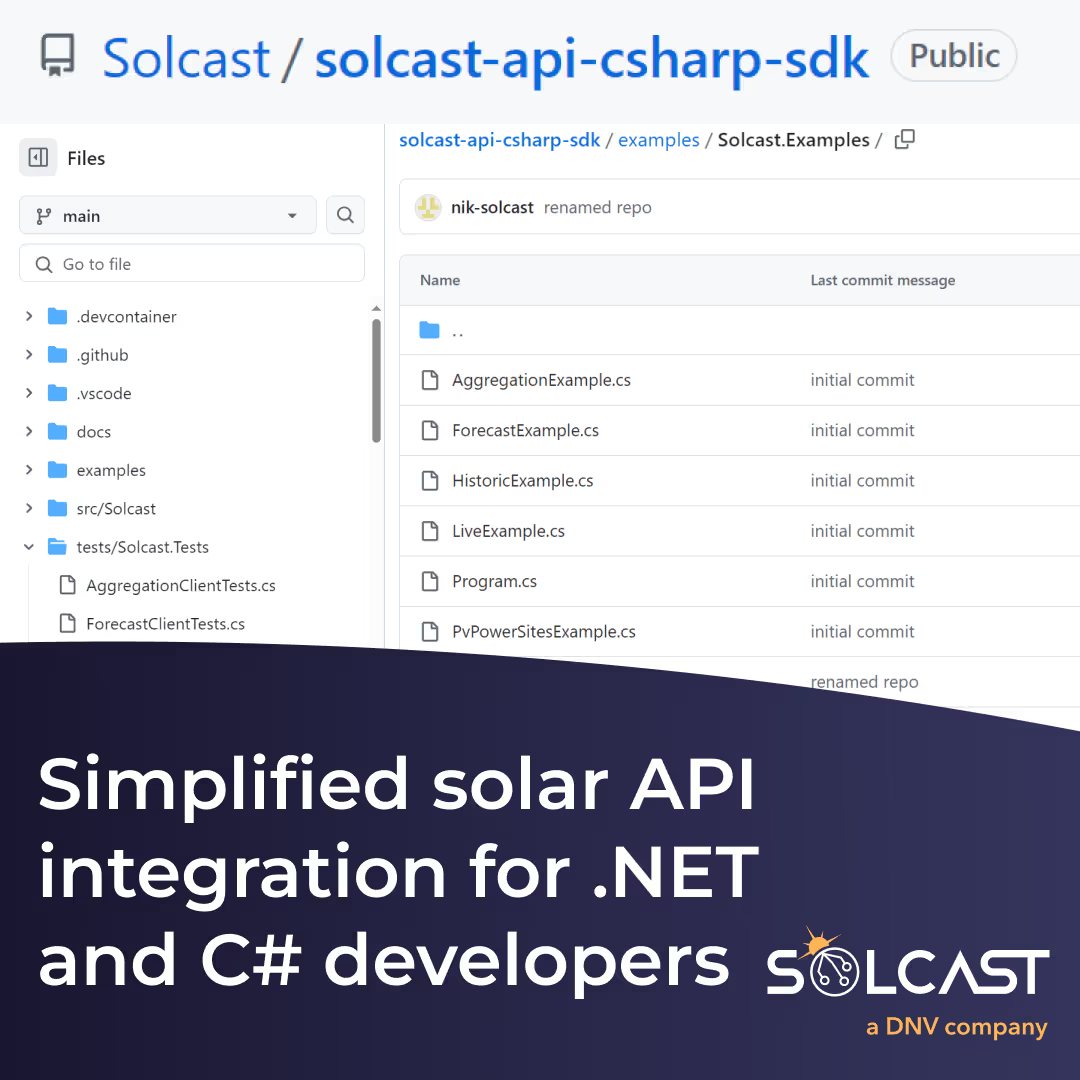
Introducing the Solcast C# SDK: Simplifying Solar-Specific Data Integration for .NET Developers
Supporting seamless integration, the Solcast C# SDK gives .NET and C# developers another tool to quickly access solar API and focus on building solar solutions.
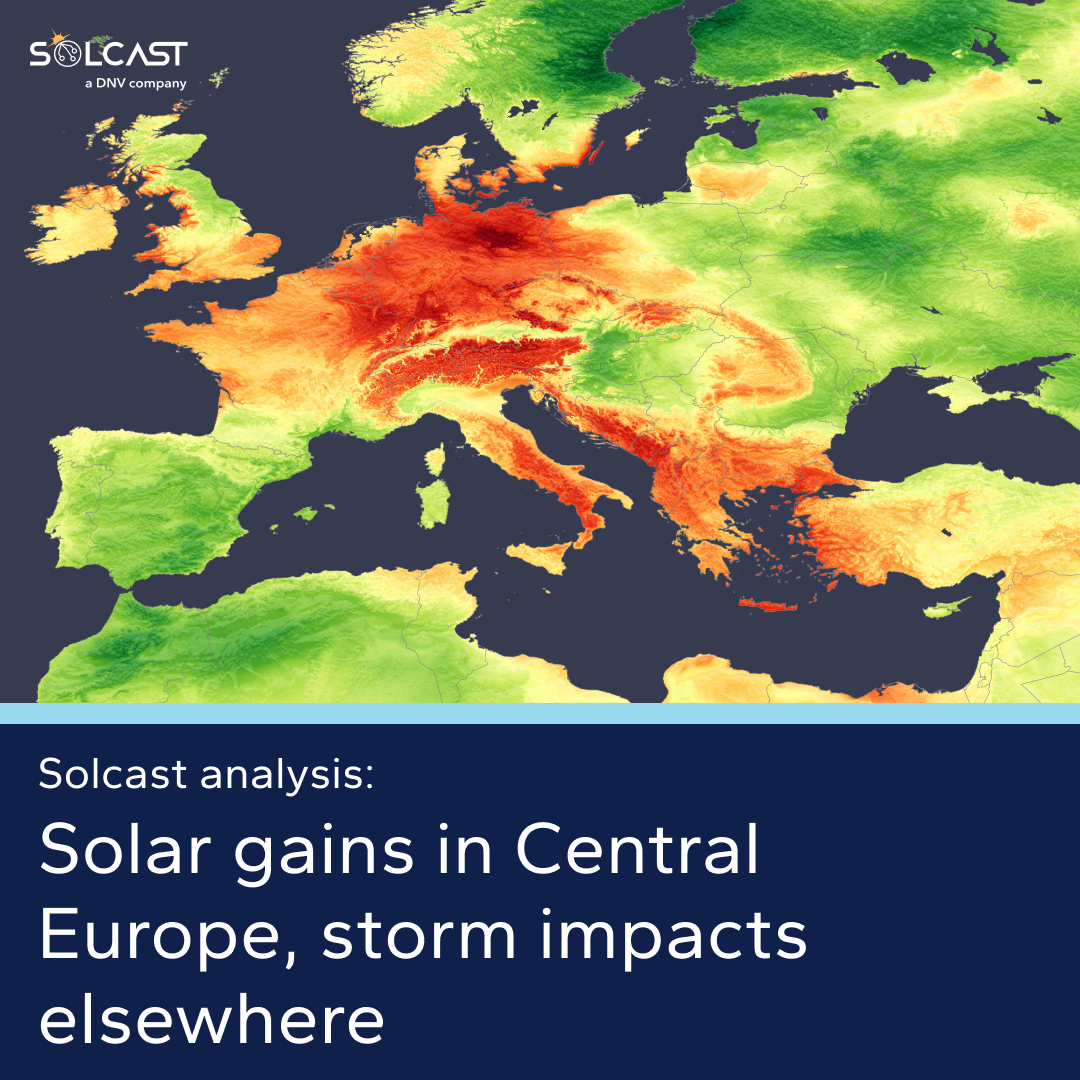
Storm systems and late snow event drag down irradiance in eastern and western Europe
Storm systems and late-month snowfall reduced solar irradiance across much of Europe in December 2025, while central regions benefited from clearer conditions
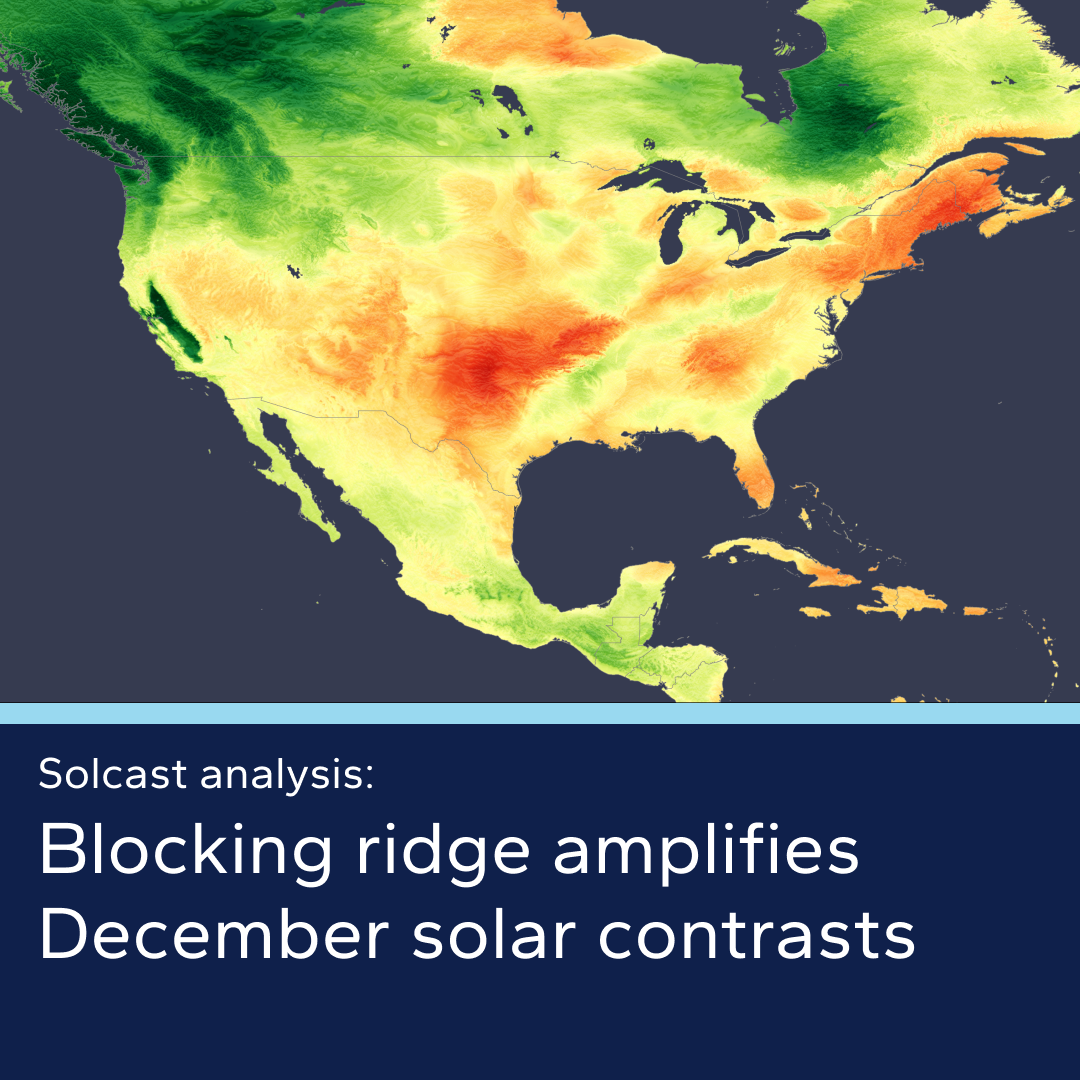
La Niña Ridge drives December solar gains across U.S. Southwest
December irradiance anomalies followed a classic La Niña setup, with a ridge over the Southwest driving strong solar gains and deficits across northern regions.

Early solar forecast: First half 2026 solar outlook
Forecasts for early 2026 point to a mixed solar outlook. While Australia and eastern China are likely to experience above-average irradiance, Europe and parts of the Americas may see below-average conditions early in the year.
.png)
Solcast is one of DNV’s Green Data Products
Solcast is now part of DNV’s Green Data Products, a trusted suite of renewable energy solutions. Together, we deliver bankable data and advanced power models to support financing, forecasting, and operations across the renewable lifecycle.
.png)
How we did it: The story behind Solcast’s big result in major forecast accuracy competition
Take a behind-the-scenes look at how Solcast topped the charts in the forecast accuracy trial, using its Advanced PV Model and years of continuous improvements.
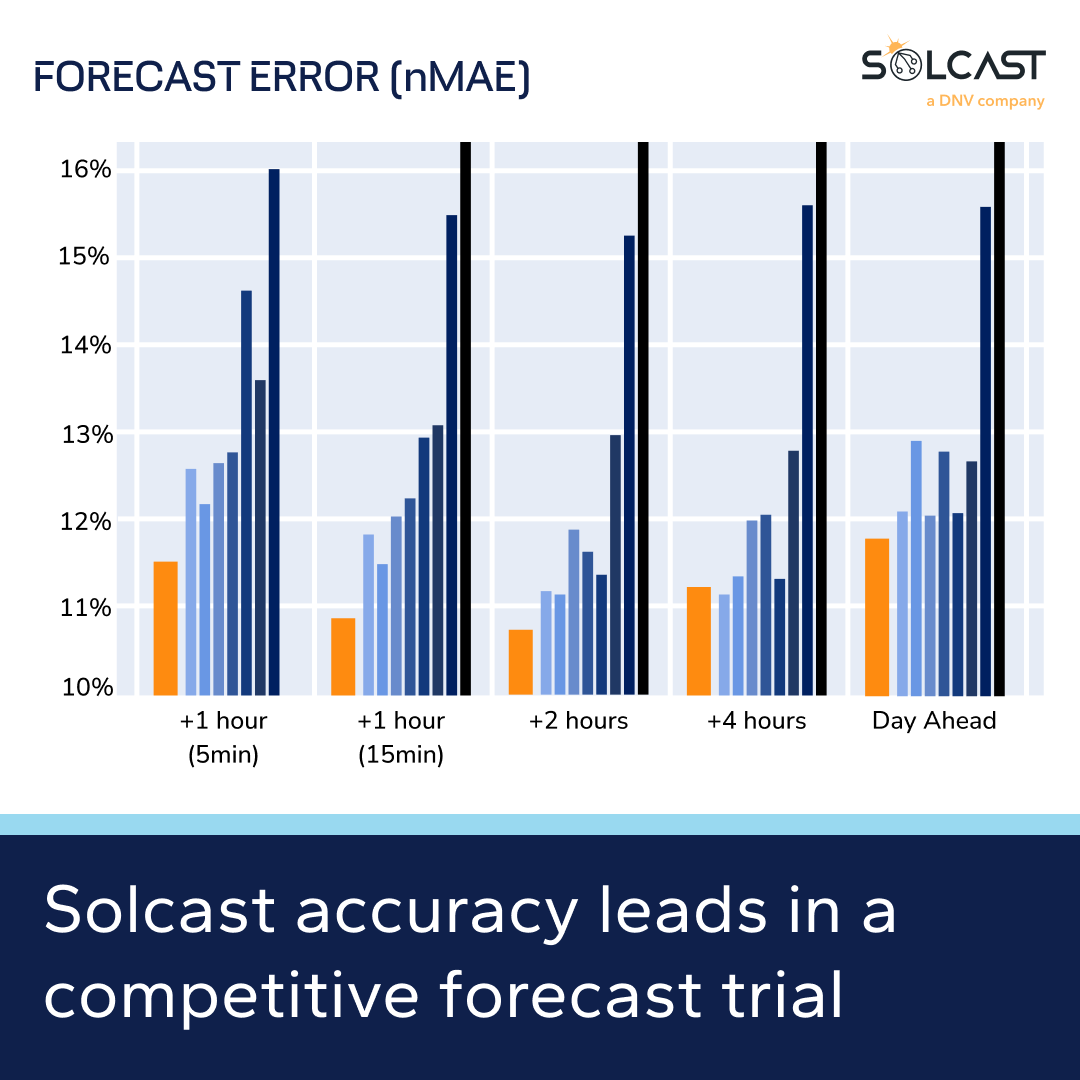
Solcast’s forecast accuracy proven in major competitive trial
Proving its leadership in solar forecasting, Solcast, a DNV Company, achieved the lowest error rate in the EPRI trial spanning 5 solar plants and 12 weeks from hour ahead to day ahead.

Modelling PV soiling with PM2.5 and PM10: New parameters in the Solcast API
Solcast has introduced new parameters for PM2.5 and PM10 particulate matter concentrations in its API to improve the accuracy of photovoltaic (PV) soiling loss modelling globally. This integration supports data-driven soiling analysis by combining particulate data with irradiance and weather information for better energy yield predictions.
.png)
UK and Germany lead March solar surge amid Mediterranean cloud cover
Northern Europe saw unusually dry conditions in March, while the Mediterranean faced cloudier conditions. Learn what drove this weather shift.
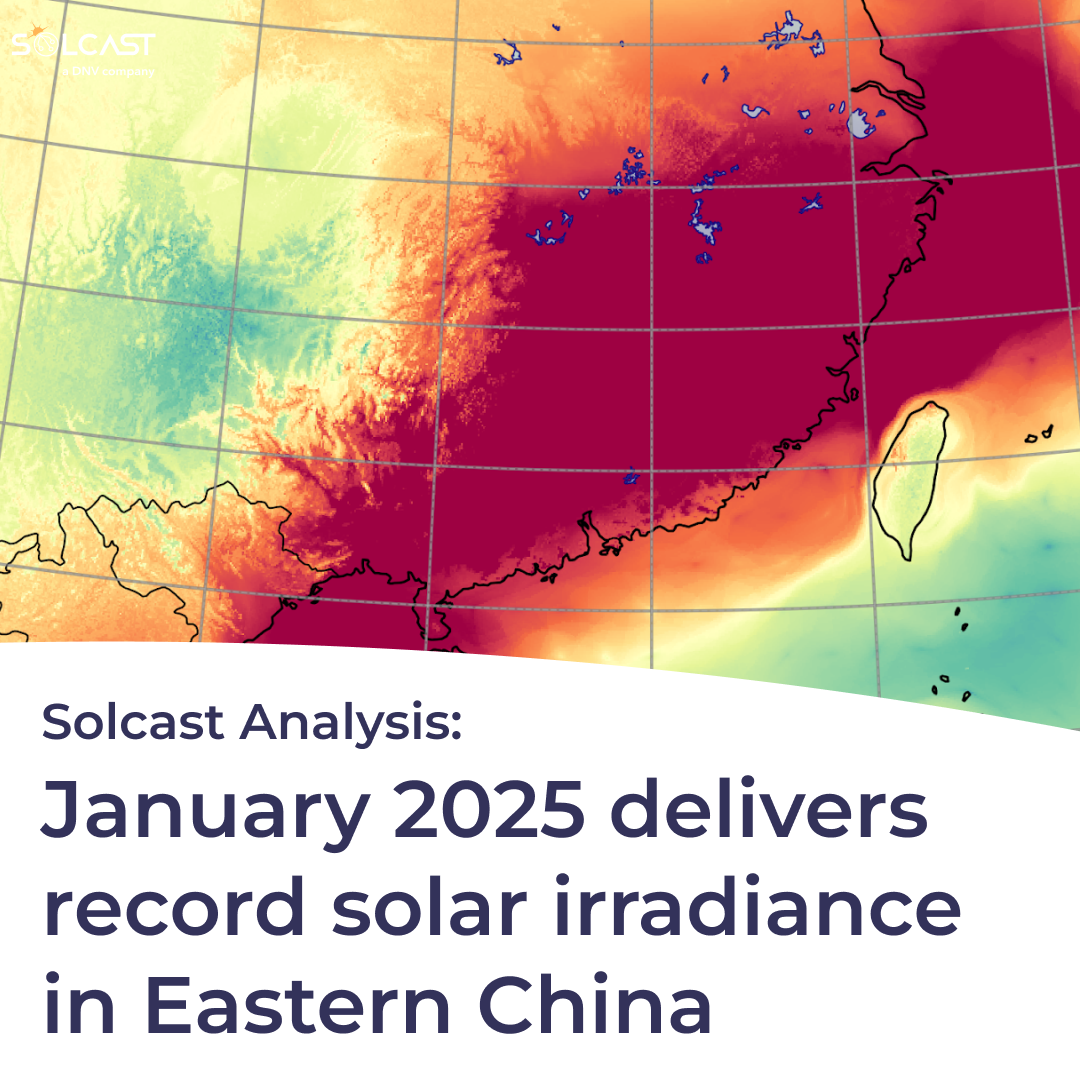
La Niña and low aerosols deliver 60% irradiance surge across Eastern China
Learn how the combination of La Niña conditions and low aerosols created ideal conditions for solar operators in China.
Get the right data, tools, and solutions for your renewable operations.







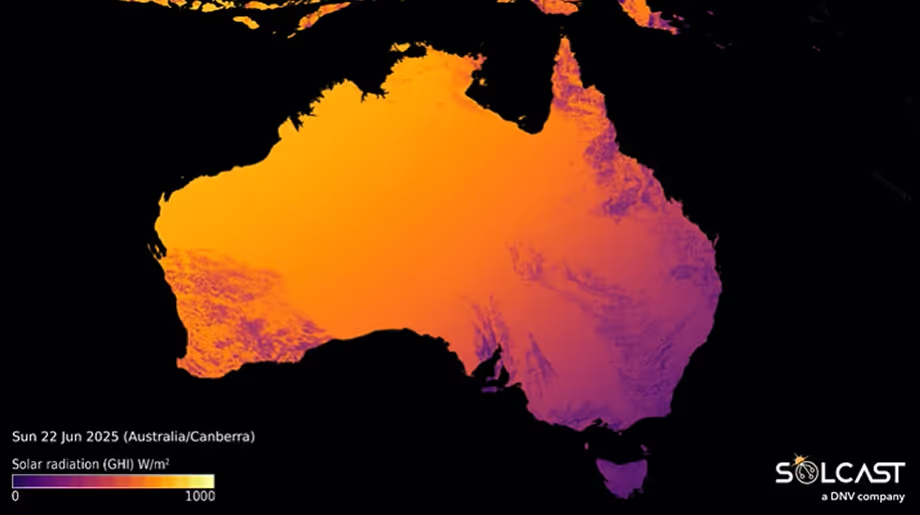
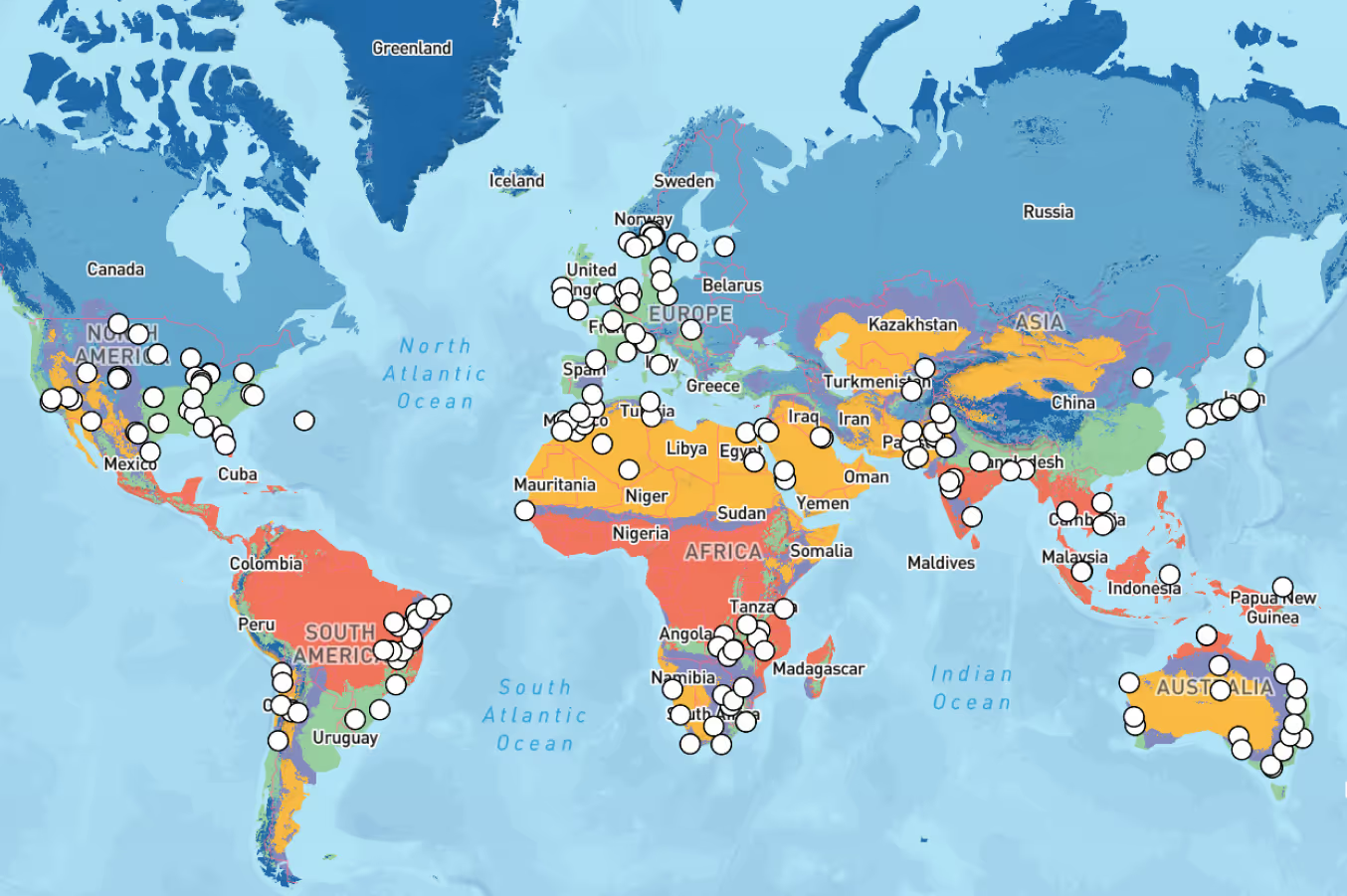
.avif)
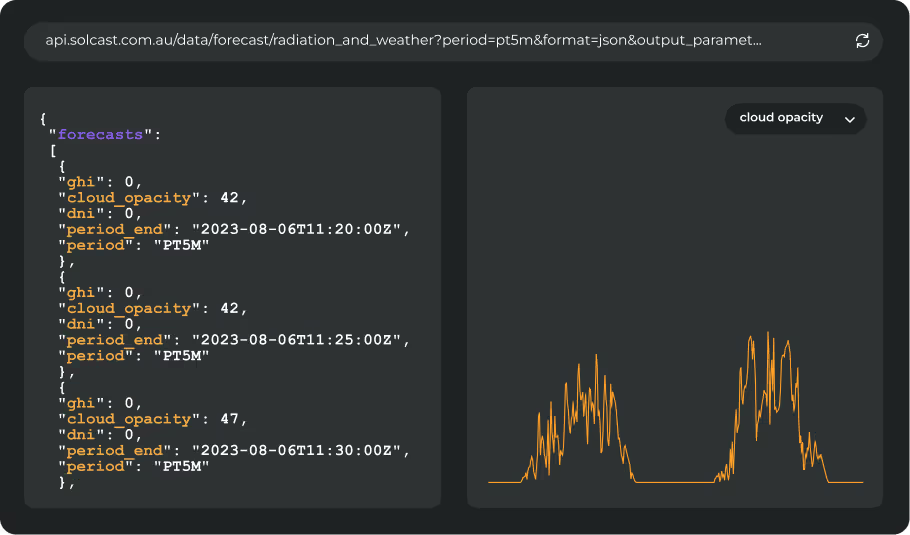

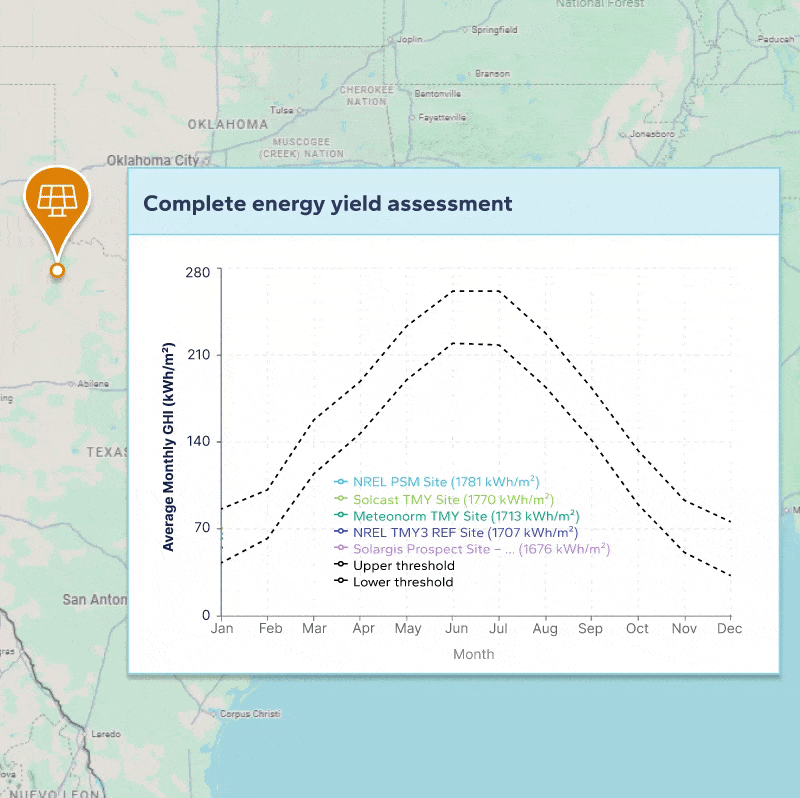
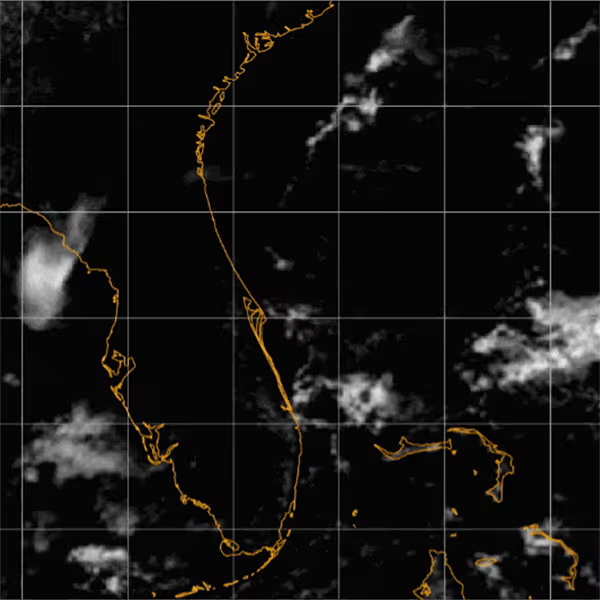


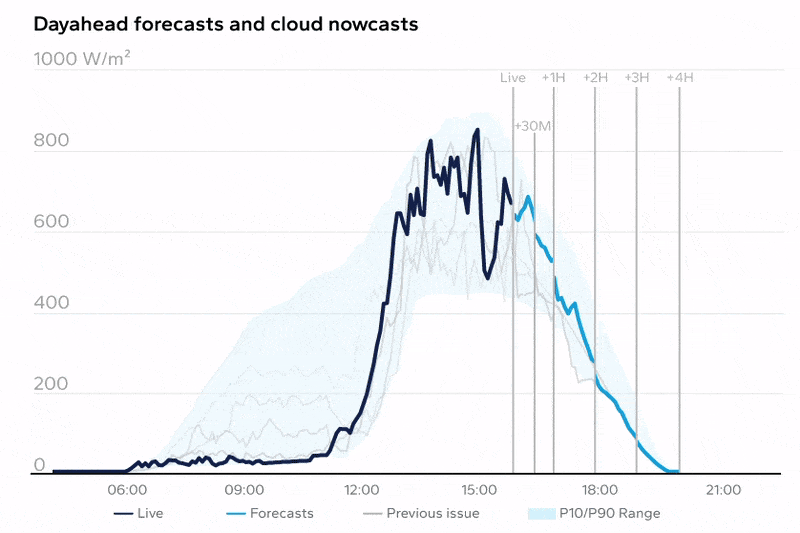
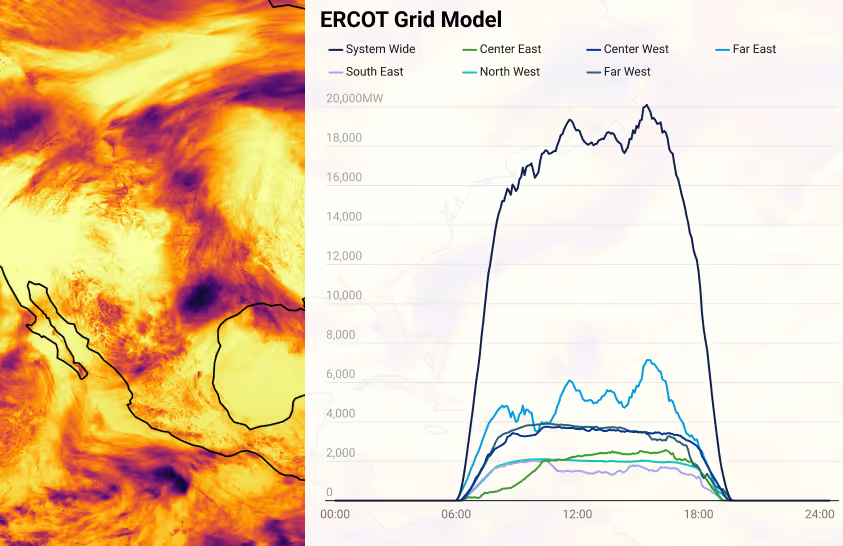
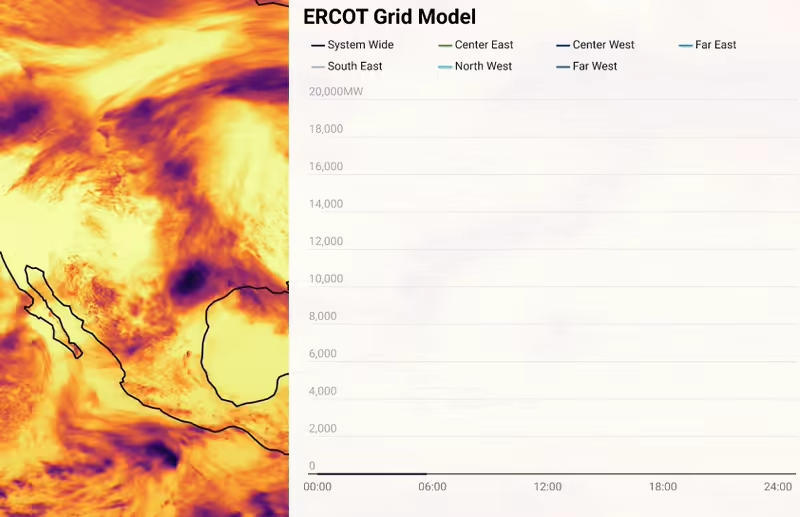
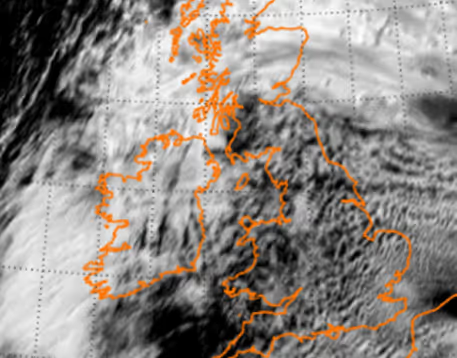

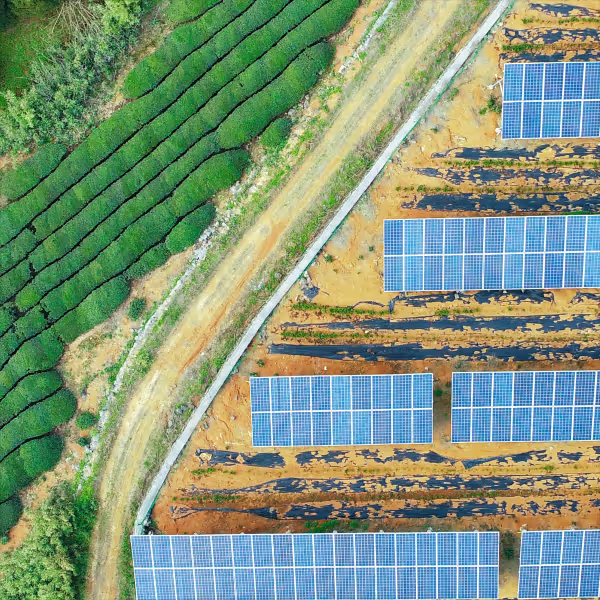







































_Frame.png)

















